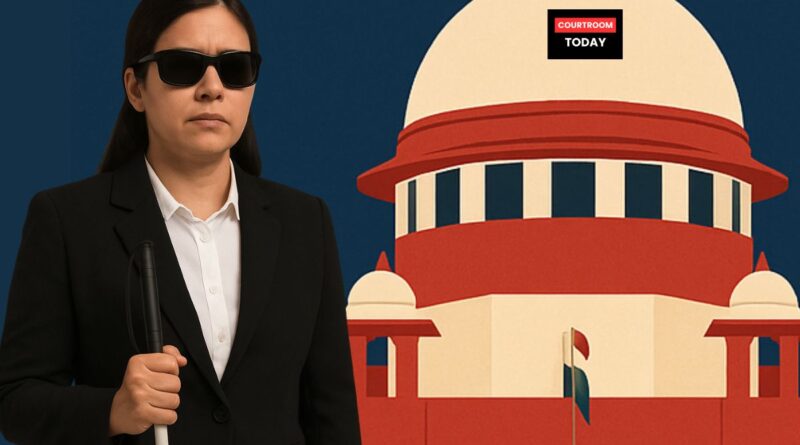Supreme Court: Visually Impaired Persons Eligible for Judicial Service, MP High Court Told to Amend Rules
The Supreme Court has reaffirmed that visually impaired persons are fully capable of serving in the judiciary and cannot be denied the opportunity to participate in judicial service examinations. The Court granted the Madhya Pradesh High Court four months to implement this ruling and make the necessary amendments to its recruitment rules.
A Bench of Justices JB Pardiwala and KV Viswanathan observed that the Madhya Pradesh High Court is already in the process of revising its Judicial Service Rules in consultation with the state government. The Court, therefore, allowed additional time and directed that the matter be listed after four months to assess compliance and progress.
Earlier, on 3 March 2025, the Supreme Court had delivered a detailed judgment addressing petitions, including a suo motu matter, that raised concerns about the exclusion of visually impaired and low-vision candidates from judicial service across various states.
The apex court made it clear that denying opportunities based on disability violates the spirit of equality enshrined in the Constitution and the Rights of Persons with Disabilities (RPwD) Act, 2016. It emphasised that the right against disability-based discrimination must be treated as a fundamental right, ensuring that no qualified person is rejected merely because of a physical impairment.
In its 122-page judgment, the Supreme Court observed that “visually impaired candidates cannot be said to be unfit for judicial service and are eligible to participate in the selection process for judicial posts.”
The Court struck down the discriminatory provisions in the Madhya Pradesh Judicial Service (Recruitment and Conditions of Service) Rules, 1994, including:
- Rule 6A, which excluded visually impaired candidates from applying despite being educationally qualified.
- Rule 7, which imposed additional conditions that failed to meet the principles of equality and reasonable accommodation.
These provisions, the Court said, were unconstitutional as they denied equal opportunity and failed to uphold the rights of differently-abled persons aspiring to serve in the judiciary.
The Madhya Pradesh Judicial Service Rules, 1994, govern recruitment, appointment, promotion, and service conditions for Civil Judges (Junior and Senior Division) and District Judges in the state. The Supreme Court’s ruling now ensures that these rules are inclusive and in line with the principles of accessibility, equality, and dignity guaranteed under the Constitution and the RPwD Act.
This landmark decision is a major step toward creating an inclusive judicial system that values competence over physical ability and opens doors for visually impaired aspirants to serve as judges in India.





